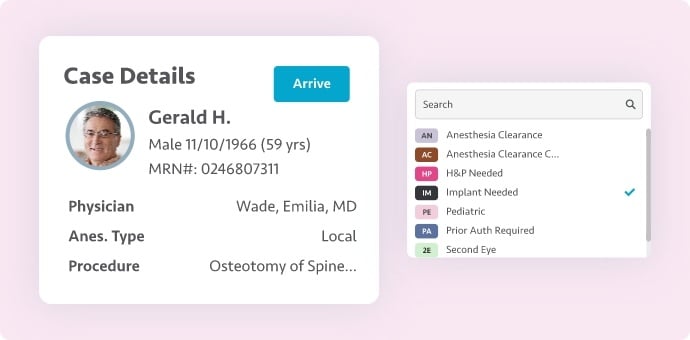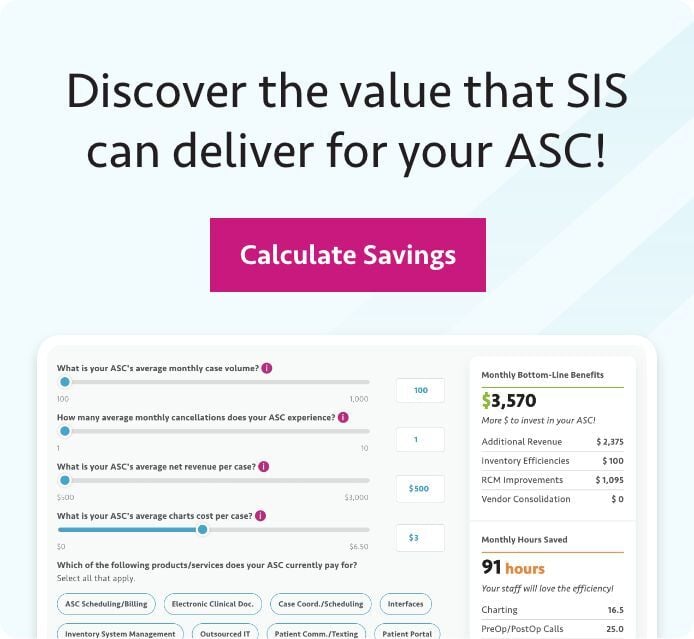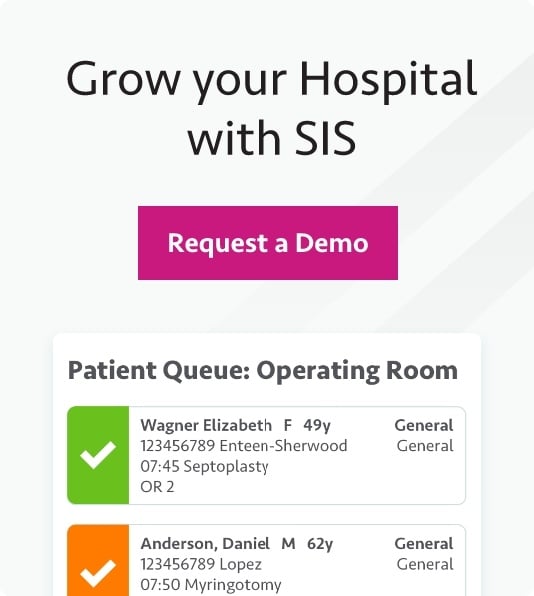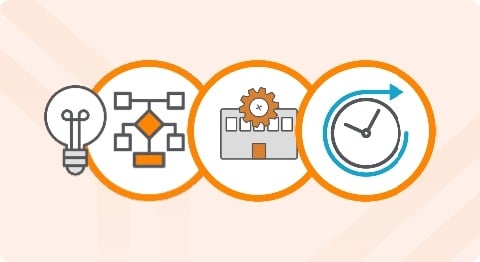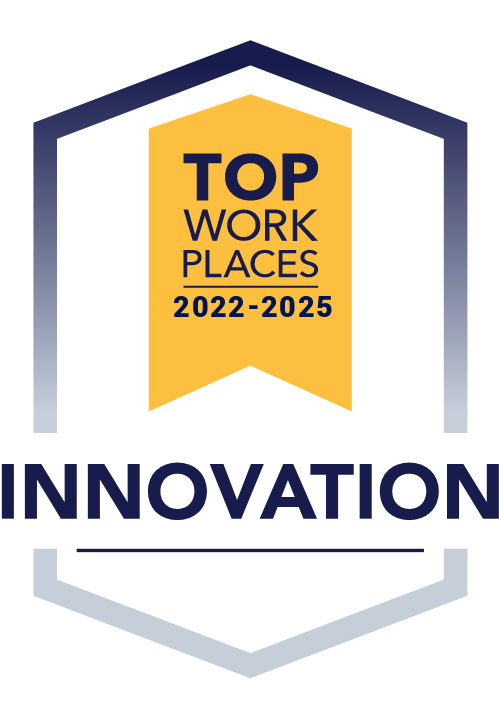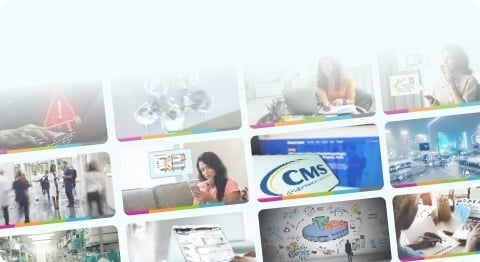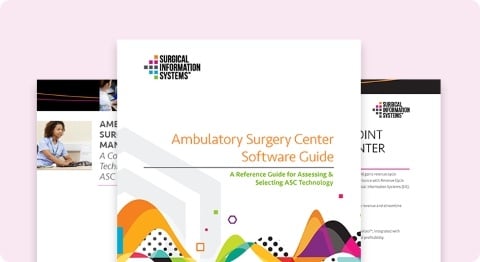A recap of Daren Smith’s ASCA presentation on “Achieving CMS and Accreditation Success: The Role Your EHR Should Play,” providing insight and guidance concerning CMS and accreditation surveys and the value of ASC software.
Last week at the 2023 ASCA Conference and Expo, Daren Smith, industry expert and VP of ASC Solutions at SIS, presented a webinar on “Achieving CMS and Accreditation Success: The Role Your EHR Should Play."
As the title suggests, Daren presented the ways that an electronic health record (EHR) system can help surgery centers achieve successful Centers for Medicare & Medicaid Services (CMS) and accreditation surveys. He summarized how ASC software broadly assists with surveys and then dove into a number of specific areas and standards common to CMS and the various surgery center accreditation organizations.
Here are four takeaways for ways to better use your EHR to help with CMS and accreditation success:
Know how your EHR addresses ASC standards
When a surgery center is using paper, there are specific processes that they’ll need to follow to ensure that standards compliance is being met. With an EHR, while the standards that you need to follow to meet compliance are the same, the processes to store and retrieve the documentation are completely different. Be sure to take the time to get very familiar with how your particular EHR addresses these standards.
Train your Super Users
When it's time for the accreditation surveyor to visit your surgery center, you want to be sure that the Super User assigned as the guide is well-trained on where requested documentation is stored in your system to show them that you're meeting those standards. The Super Users should understand what compliance standards are required, how the software supports these requirements, where data is stored, and how to best use the program. The guide should know precisely where each piece of information lives, so when the surveyor says, "Can you show me the H&P in this chart?" the guide can quickly navigate to and show them the H&P, signatures, and time and date stamps.
Learn from experience
During the build and implementation process, your software vendor will help you build your EHR to reflect the workflows and processes that best set your facility up for success, but there will always be more to learn. Between new feature releases, facility changes, and requirement changes, your workflows will likely be updated and modified to fit your changing needs and goals. This is where knowledge sharing is key. Connecting with other professionals who use the same EHR creates an opportunity to learn potential ways to configure your system differently to help increase compliance. For example, they may have come across a way to address a standard that you didn’t think of, or previously been cited for a standard and can offer insight on avoiding the same outcome.
Use the software!
These EHR systems are built with well-defined purposes in mind – including giving you the ability to meet accreditation standards. If your system gives you opportunities to optimize your workflows in ways that will support standards compliance, make sure those functionalities are turned on and that your staff is using them. This includes capabilities such as drug-to-drug and drug-to-allergy checks. Most EHRs you have the ability to turn these features on or off, so make sure the ones that are designed to keep you compliant are turned on.
Learn How to Improve Your ASC's Accreditation Success
For more insight and guidance concerning CMS and accreditation surveys and the value of ASC software, you can watch a previous presentation of “Achieving CMS and Accreditation Success: The Role Your EHR Should Play.” This program has been approved for 1.0 hours of AEU credit by BASC Provider #1125. Watch the recording here!




